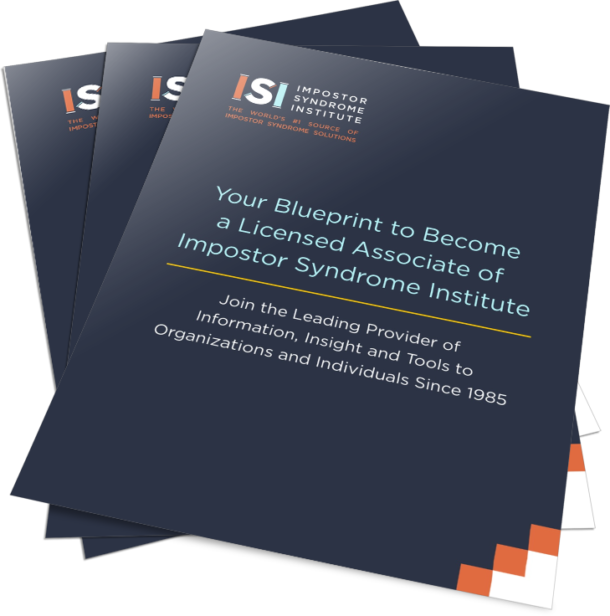
An article in the Abu Dhabi English-edition daily, The National, approached the impostor syndrome from a unique angle.
Most articles focus on the anxiety of waiting for the other shoe to drop.
Instead this Middle East reporter says impostor syndrome can be an indicator that you care about your work.
It’s true that people who feel like impostors do indeed care deeply about the quality of their work.
So to ensure they do a stellar job people with impostor syndrome tend to study harder, work longer, cross every i and dot every t.
After all, we don’t want to go off half-cocked, especially if our actions affect other people. And we certainly don’t want to promise something unless we’re absolutely certain we can deliver.
Unfortunately, that caring can sometimes come at a heavy price.
That’s because “impostors” who equate competence with perfection believe every aspect of their work must be exemplary – not just some or even most of the time, but 100 percent of the time. Anything less results in harsh inner criticism coupled with deep shame at this perceived “failure.”
Precisely because there is such shame in failing, some avoid attempting anything new or difficult altogether. After all, getting things “right” takes a lot of effort, energy, and aggravation.
It’s much easier not to even try than to put yourself through those paces and risk the humiliation of coming up short.
Even if you are extremely motivated, success is rarely satisfying because you always believe you could have done even better.
You get into a good school but are disappointed because you could have gotten into a better one.
You deliver a top-notch presentation but kick yourself for not remembering to make some minor point.
You broker a major transaction only to wonder if you could have struck an even better deal.
Perfectionism is a hard habit to break because it is self-reinforcing.
Because you do over-prepare, you often turn out a stellar performance – which in turn reinforces your drive to maintain that perfect record.
But it’s a huge set up.
Because when you expect you and your work to always be perfect, it’s not a matter of “if” you will be disappointed but “when.”
You don’t need to relinquish a quest for excellence or do things willy-nilly. But with some obvious exceptions like performing surgery or flying an airplane and the like, not everything we do deserves 100 percent.
It’s a matter of being selective about where you put your efforts and not wasting time agonizing over routine tasks when an adequate effort is all that is required.
You see, rather than enabling your success, perfectionist thinking is actually a gigantic barrier.
The late author Jennifer White said it best when she wrote: “Perfectionism has nothing to do with getting it right. It has nothing to do with having high standards. Perfectionism is a refusal to let yourself move ahead.”
It’s that last line that is so powerful.
Caring about one’s work can also show up in the faulty thinking that we need to know a subject backwards and forwards before speaking up in a meeting or offering an opinion for fear of being wrong.
If you accept the false notion that you need to know everything there possibly is to know before you consider yourself remotely competent, you may not even attempt things you’re perfectly capable of doing.
As coaching legend John Wooden said, “It’s what you learn after you know it all that counts.”
There is no “end” to knowledge.
When you try to know everything, especially in fast-moving and information-dense fields like technology and medicine, it’s like trying to get to the end of the internet.
It’s simply not possible.
The quest for ultimate knowledge is an unreachable mirage.
Instead relax and just do the best you can.
Besides you don’t need to know everything.
You just need to be smart enough to figure out who does and take it from there.
You should care about your work.
But it’s a matter of balance.
Perfectionists are welcome to hold onto that pursuit of high standards. Just shed the shame you feel when you fall short.
Those who embrace the knowledge version of perfectionism can still value the importance of knowledge.
Just ditch the unrealistic expectation that you should know it all.
You are welcome to reprint this post with the bio below.


